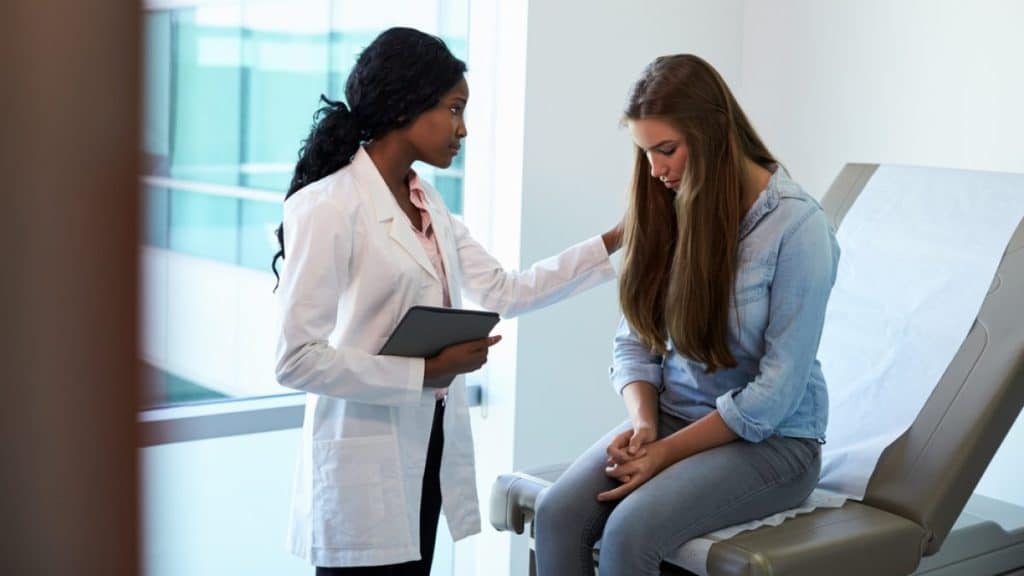Chronic depression is a serious mental health condition that affects millions of people globally. While its emotional and psychological toll is well-documented, its impact on reproductive health is less commonly discussed. Understanding this connection is crucial for both men and women who are experiencing fertility issues and are also dealing with depression.
The Hormonal Connection
Hormones are the body’s chemical messengers, playing a critical role in regulating mood, stress, and reproductive functions. Chronic depression often disrupts these hormonal balances, particularly involving cortisol, estrogen, progesterone, and testosterone. Elevated cortisol levels, a common result of prolonged stress and depression, can interfere with reproductive hormones, leading to irregular menstrual cycles, ovulatory dysfunction, and reduced libido in women. In men, high cortisol levels can lower testosterone, affecting sperm quality and count, and leading to erectile dysfunction.
Effects on Women
For women, chronic depression can cause irregular menstrual cycles and anovulation (lack of ovulation), making conception difficult. It is also linked to polycystic ovary syndrome (PCOS), a condition that further complicates fertility. Depression can lower estrogen levels, crucial for reproductive health, and increase the risk of miscarriage. Additionally, women may experience a decreased sexual drive, adding another layer of complexity to fertility issues.
Effects on Men
Men with chronic depression face their own set of reproductive challenges. Elevated cortisol can reduce testosterone levels, leading to poor sperm quality and count. This hormonal imbalance can significantly impair fertility. Men may also suffer from reduced sexual desire and erectile dysfunction, further complicating their reproductive health.
Psychological and Emotional Impact
The psychological and emotional effects of chronic depression can also affect reproductive health. Depression often leads to decreased motivation and energy, making it difficult to maintain healthy behaviors that support fertility, such as a balanced diet, regular exercise, and avoiding harmful substances like alcohol and tobacco.
Managing the Impact
Addressing the reproductive consequences of chronic depression necessitates a holistic approach. Effective management through therapy, medication, and lifestyle adjustments can help restore hormonal balance. Regular exercise, a nutritious diet, and stress-reduction techniques such as mindfulness and yoga support hormonal health and enhance reproductive fitness. Open communication with healthcare providers about mental health and reproductive objectives is crucial for crafting a personalized care plan.
depression, it is crucial to seek professional help. Dr. P.K. Gupta, a renowned expert in mental health and reproductive wellness, emphasizes the importance of a holistic approach to treatment. By addressing both mental and physical health, individuals can improve their overall well-being and increase their chances of achieving reproductive success.
Steps to Take
1. Seek Professional Help: Consult a mental health professional to address the underlying causes of depression. Therapy, counseling, and medication can be effective in managing depression and improving mental health.
2. Maintain a Healthy Lifestyle: Maintaining hormonal balance and overall health requires regular exercise, a balanced diet, and sufficient sleep. Additionally, integrating stress-reduction techniques like mindfulness, yoga, or meditation into your daily routine can further enhance well-being.
3. Monitor Your Reproductive Health: Regular check-ups with a gynecologist or urologist can help monitor and manage any reproductive health issues. Discuss your mental health openly with your healthcare provider to ensure a comprehensive treatment plan.
4. Open Communication: Maintain open communication with your partner about your mental health and reproductive goals. Support from a partner can be invaluable in managing both depression and fertility challenges.
5. Join Support Groups: Connecting with others who are experiencing similar challenges can provide emotional support and practical advice. Support groups for depression and fertility can offer a sense of community and understanding.
Conclusion
Chronic depression can have a profound impact on reproductive health, but with the right approach, it is possible to manage both conditions effectively. By seeking professional help and adopting a healthy lifestyle, individuals can improve their mental well-being and enhance their reproductive fitness. Dr. P.K.Gupta, a leading expert in the field, advocates for a holistic approach to treatment, emphasizing the importance of addressing both mental and physical health to achieve the best possible outcomes.
